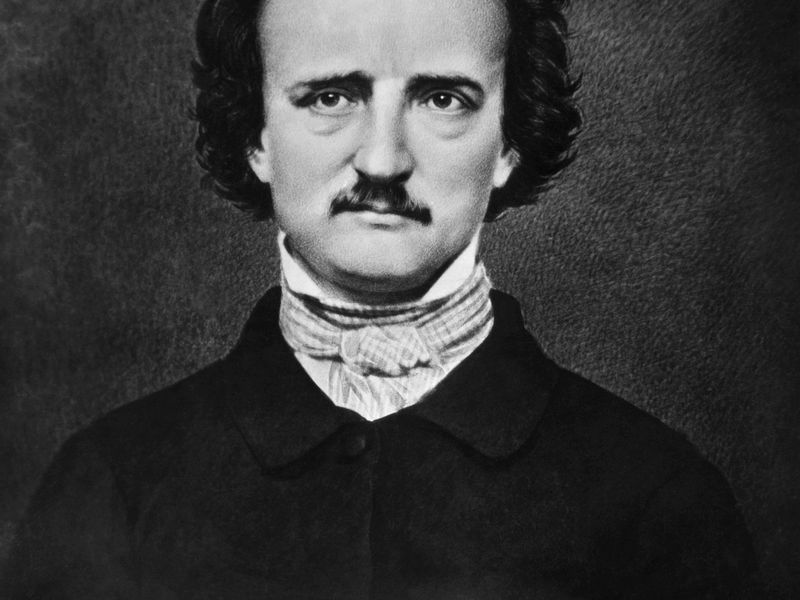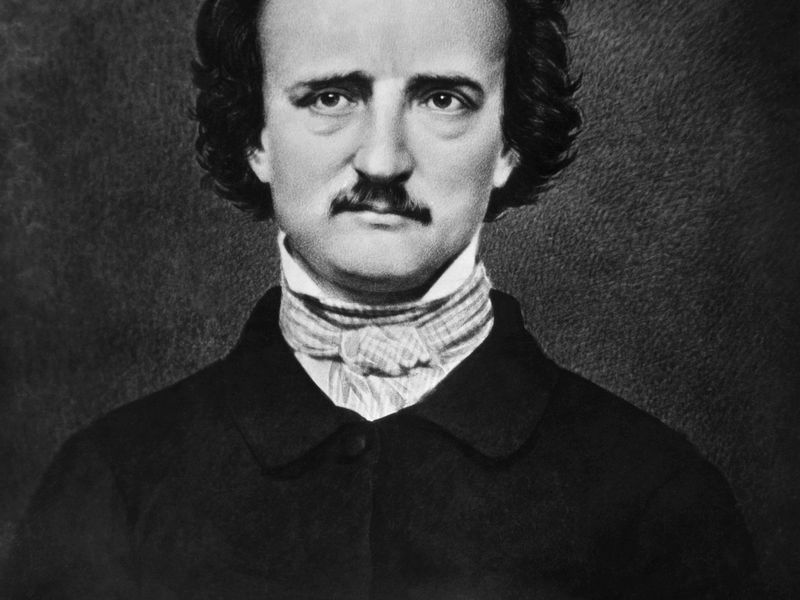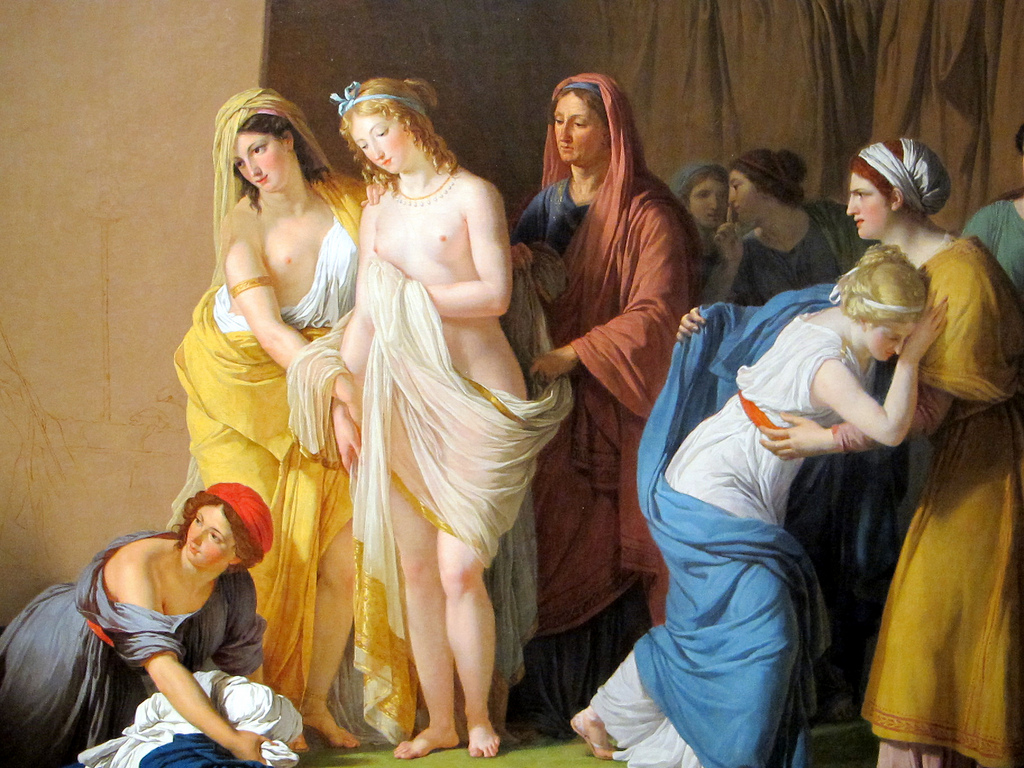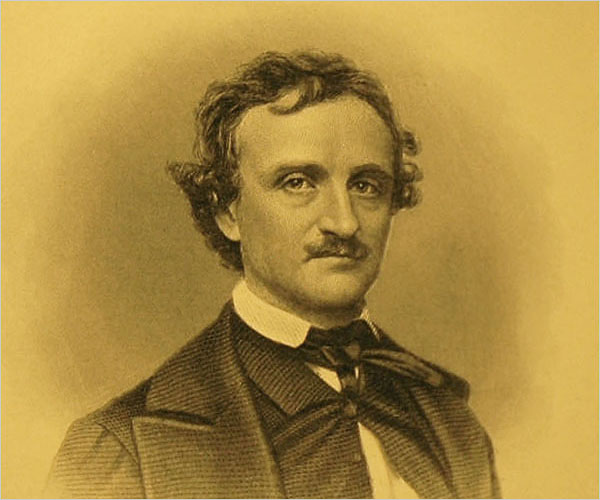INTRODUCTION TO THE POEM:The poem Israfel, was penned in an army encampment after Poe left college and was first published in the year 1831 in a collection titled Edgar. A. Poe. However, it was altered and amended to be published again in the August 1836 issue of the Southern Literary Messenger. The poem was originally written in eight stanzas of varied lengths and in an introduction to the poem, Poe explicates that he derives the legend of Israfel from the Koran of an angel who is blessed with a lute for a heart and who possesses “the sweetest voice of all God’s creatures”. In reality, although the name ‘Israfel’ is not principally mentioned in the Islamic holy texts, there is a constant reference to an unnamed trumpet-angel and it is probable that this figure is what inspired Poe to create the poem Israfel.
SETTING OF ISRAFEL: The poem Israfel has the air of majestic musical beauty and the various ancient references to Islamic scriptures lends to it an exotic charm. The poem resembles in setting to the highly acclaimed poem by Coleridge titled Kubla Khan
MOOD OF ISRAFEL: Plenty of the writer’s works are generally considered segments of the dark romanticism genre, and it was a stance of literary protest against transcendentalism, which Poe was not in favour of. However, in the poem Israfel, Poe dynamically shifts his attention to a more high-spirited and brighter platform of celestial celebration of love and music, as the usage of words such as “merrily” and “laurel” and “hymns” suggest in the poem. Hence, the overall mood of the poem is pleasant and insinuating.
Israfel Critical Analysis by Edgar Allan Poe
Edgar Allan Poe was a supreme poet in his own right, and his love for romantic temperament and for poetic gifts accompanied by rich imagination and emotional intensity manifests itself in his poem, Israfel. The poem has been titled as lyrical because the mystical lyricism forms its core element. Poe has been lofty and unrestrained in his effort to produce the very tangible conflict between man and God. In this poem he very cohesively establishes his belief that man can be as good as man himself and it is futile to imitate the perfect idealism of heaven. In fact, our flaws only make us stronger and more compelling.
As earlier described the poem follows no strict pattern of rhyme scheme or rhythm and it only adds to its wilful charm. The poem, or rather the speaker in the poem stands for humanity, or all that is best in it. He is like a revolutionary hero who is not bowed down by the supernatural and is the true reflection of the will of man. But above all, the speaker in the poem, who is probably the poet himself, is a true artist who pays his due respect and homage to the art of music by glorifying the angel Israfel for his tremendous voice that issues from the heart of lyre. The uneven meter flows and changes with emotion and fabricates into a song of noble desires.
The language of the poem is initially coherent but airy like that of a magical dream. The presence of the animated characters of the stars and the red Levin along with the seven Pleiades form the choir in a sensuous description of the heaven. This part of the poem is a pure work of fancy and creates a romantic and rapturous atmosphere in which Israfel reigns with his ecstatic musical voice. The following lines sort of brings the reader back to earth in a smack – “Yes, Heaven is thine; but this / Is a world of sweets and sours; / Our flowers are merely—flowers”. There is no use of fanciful of words or pretences here, just sad or merry realism.
Hence, it can be critically observed that the poem is about mortal poetic potentialities and despite the mysticism and awe evoked in the poem, the whole description is psychologically accurate because when the poet is in a state of frenzy, as suggested in the very last lines of the poem, he achieves the creative heights of his rival the angel Israfel. Touches of realism has been added so as familiarize the human frustrations of limited resources. Thus it becomes true to earthly experience and promotes poetic faith.
CONCLUSION: The ideas which Poe put into Israfel require a special kind of treatment. The abstract principles of poetry that meant so much to him and had for him an almost personal existence would be presented only in the form of a genuine myth narrated in his own original imagination. Supernaturalism in Poe is usually a presentation of psychological horror or that of the occult. He moves out of his staple genre, and here it serves to exhibit the effects of the supernatural upon human conduct in a benevolent manner.
The angel Israfel, in a way, inspires the poet to reach beyond his limited means and urges him on to create immortal art. This poem proves to us that reality of success does not merely consist of material objects perceptible to the senses, but also in the deeper passions and experiences of the soul, the fulfillment of which can only be contrived through artistic creativity.
Some online learning platforms provide certifications, while others are designed to simply grow your skills in your personal and professional life. Including Masterclass and Coursera, here are our recommendations for the best online learning platforms you can sign up for today.
The 7 Best Online Learning Platforms of 2022
- Best Overall: Coursera
- Best for Niche Topics: Udemy
- Best for Creative Fields: Skillshare
- Best for Celebrity Lessons: MasterClass
- Best for STEM: EdX
- Best for Career Building: Udacity
- Best for Data Learning: Pluralsight













